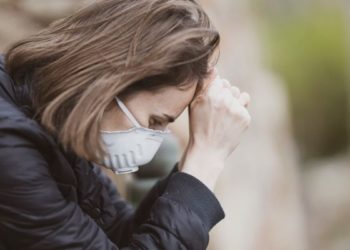Naltrexone reduces drinking in alcoholics with post-traumatic stress disorder
Image: PD
1. Patients receiving naltrexone had reduced drinking behavior.
2. Prolonged exposure therapy for PTSD (post-traumatic stress disorder) was not associated with worsening alcohol abuse.
Evidence Rating Level: 1 (Excellent)
Study Rundown: All patients in this study with both PTSD (post-traumatic stress disorder) and alcoholism receiving naltrexone treatment showed significantly reduced drinking behavior, and those in the exposure therapy groups did not experience worsening alcohol abuse. This study is importantly unique because patients with comorbid PTSD and alcohol abuse relapse sooner than alcoholics with other Axis I psychiatric diagnoses. It’s also novel in its inclusion since alcoholics are often excluded from PTSD studies due to the thought that PTSD exposure therapy may worsen drinking behavior, which this study did not show. Further studies may be needed to delineate the counseling versus exposure therapy null result since prior studies have shown exposure therapy to be superior to counseling. This study adds important evidence to the treatment approach of alcoholics with comorbid PTSD.
Click to read the study published today in JAMA
Click to read an accompanying editorial published today in JAMA
Relevant Reading: Combined Pharmacotherapies and Behavioral Interventions for Alcohol Dependence (The COMBINE Study): Examination of Posttreatment Drinking Outcomes
In-Depth [single-blind, randomized study]: This study of 165 treatment-seeking participants were randomized to 4 different groups that compared naltrexone and prolonged exposure therapy, separately and in combination, along with supportive counseling at one Philadelphia center. Those who received naltrexone had lower percentages of days drinking than those who received placebo (P = .008). PTSD symptoms were also reduced in all 4 groups, but prolonged exposure therapy did not significantly stand out as superior to counseling. All groups had increases in drinking at 6 months follow up, but those in the prolonged exposure therapy plus naltrexone group had the smallest increases.
By Mike Hoaglin and Brittany Hasty
More from this author: Soy supplementation does not reduce risk of prostate cancer recurrence, Gastric bypass surgery reduces cardio-metabolic risk factors, Dual-chamber ICDs fail to offer benefit over single chamber ICDs, Childhood migraine associated with infantile colic
© 2013 2minutemedicine.com. All rights reserved. No works may be reproduced without expressed written consent from 2minutemedicine.com. Disclaimer: We present factual information directly from peer reviewed medical journals. No post should be construed as medical advice and is not intended as such by the authors, editors, staff or by 2minutemedicine.com. PLEASE SEE A HEALTHCARE PROVIDER IN YOUR AREA IF YOU SEEK MEDICAL ADVICE OF ANY SORT.







